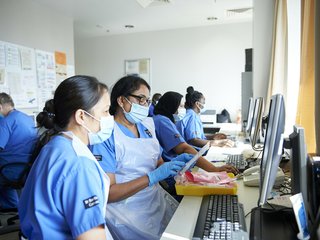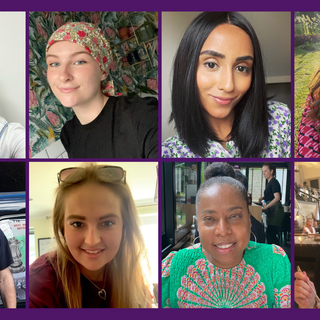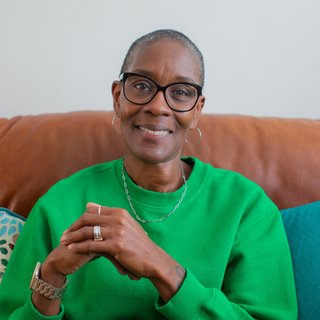76% of people aren't told they have a type of blood cancer at diagnosis
Many people with blood cancer aren't given this crucial information at diagnosis, leading to an inconsistent patient experience. We're calling on healthcare professionals to #SayBloodCancer and arm people with the facts about their condition.
How healthcare professionals can help
We’re calling on healthcare professionals to say blood cancer across four key diagnosis touchpoints:
- The diagnosis appointment itself.
- The follow-up letter you send to patients and their GPs.
- The health information you give people or signpost to.
- The follow-up appointment with a clinical nurse specialist.
There are 100+ types of blood cancer, which range from leukaemia and lymphoma to MPN and MDS. If you’re a healthcare professional, it would make a huge difference to people with all these conditions if you enacted this change today.
"When I was diagnosed with chronic lymphocytic leukaemia, I had no idea it was blood cancer. It took me two years to find out."
We know that some healthcare professionals avoid describing conditions this way because they think that not saying blood cancer is a kinder approach. But we now know that leaving out these crucial words causes more harm than good.
- 32% of people say they don’t fully understand their blood cancer diagnosis.
- 58% of people said they were unaware of support and services they were entitled to.
- 19% of people say they have never been told they have blood cancer by a professional.
- 13% of people say they were left to find out they had a type of cancer via a faceless source (ie. google).

Join the healthcare professional network
Receive regular updates about blood cancer news, research and opportunities to improve services for the blood cancer community.
We've listened to our community:
"I had non-Hodgkin lymphoma and didn’t realise it was a blood cancer until I saw it on Facebook!"
"My husband has blood cancer. We too learned about it from Google."
“Having the facts up front lets us decide if we want to use the term ‘blood cancer’ or not. If it’s blood cancer, that’s a fact. Not saying it doesn’t make it less true.”

Help raise awareness
We've created a blood cancer awareness information pack for healthcare professionals to use at events or on information stands.
Acknowledgment
Thank you to Gilead Sciences and Kite, a Gilead company, for sponsoring the printing and production of our blood cancer awareness month health information packs. Gilead has supported financially but had no input into the product or content.
Gilead Sciences is a biopharmaceutical company advancing innovative medicines to prevent and treat life-threatening diseases, including HIV, viral hepatitis, COVID-19, and cancer.


